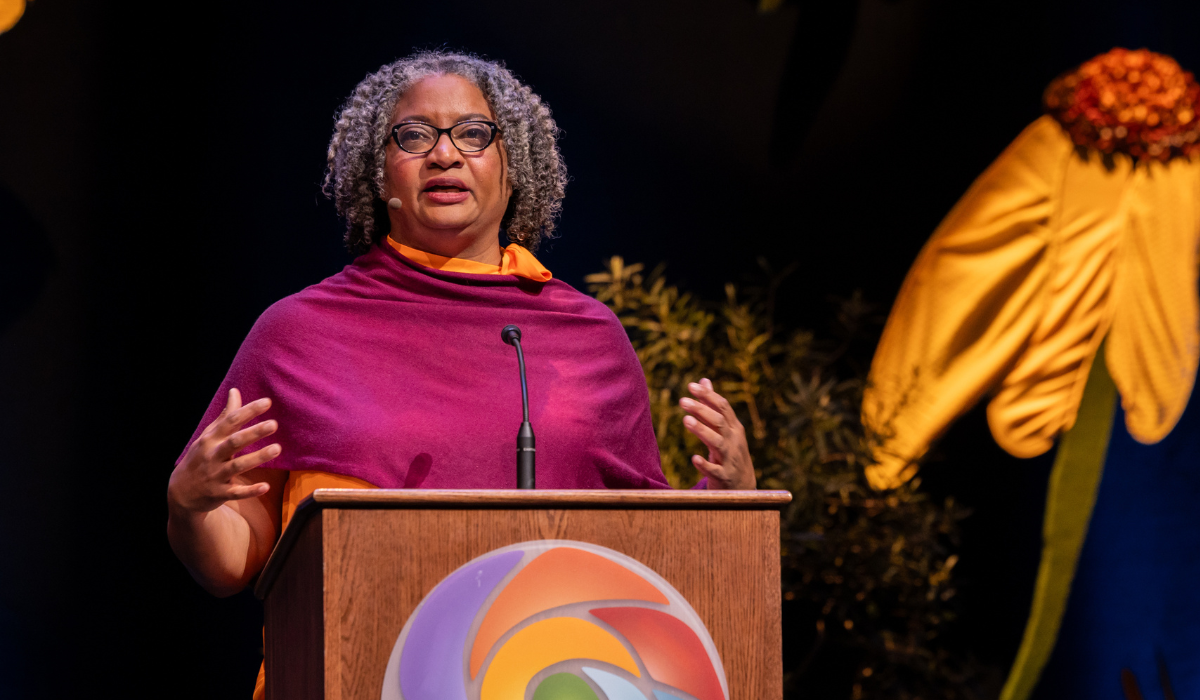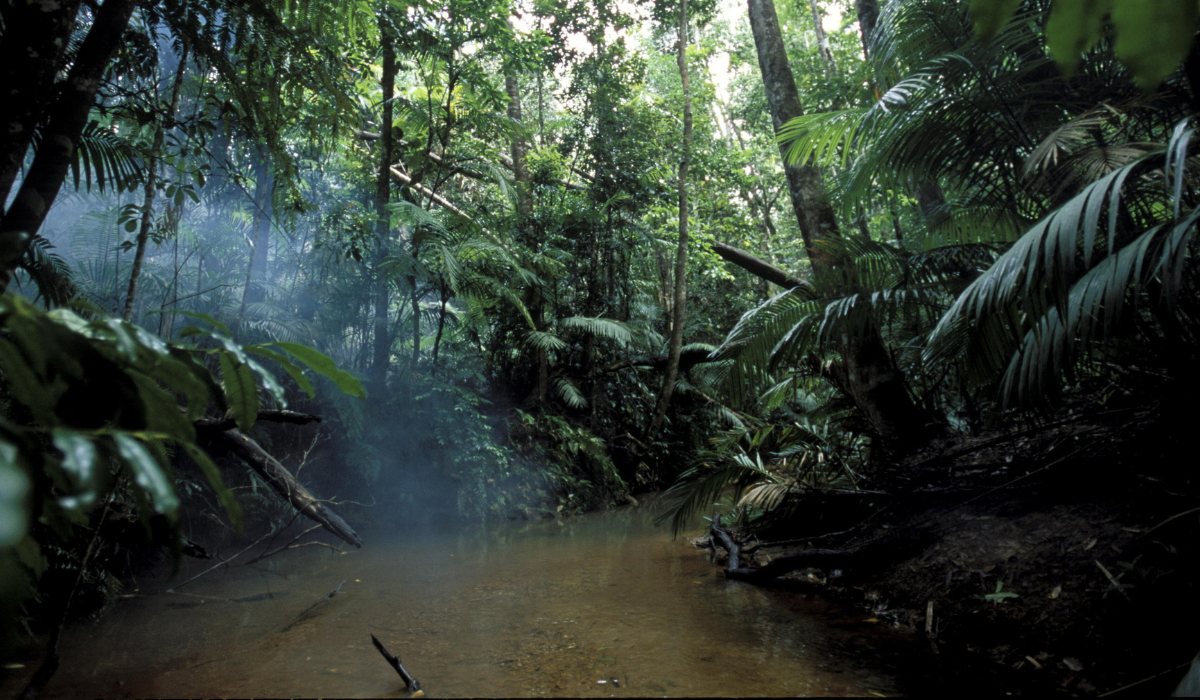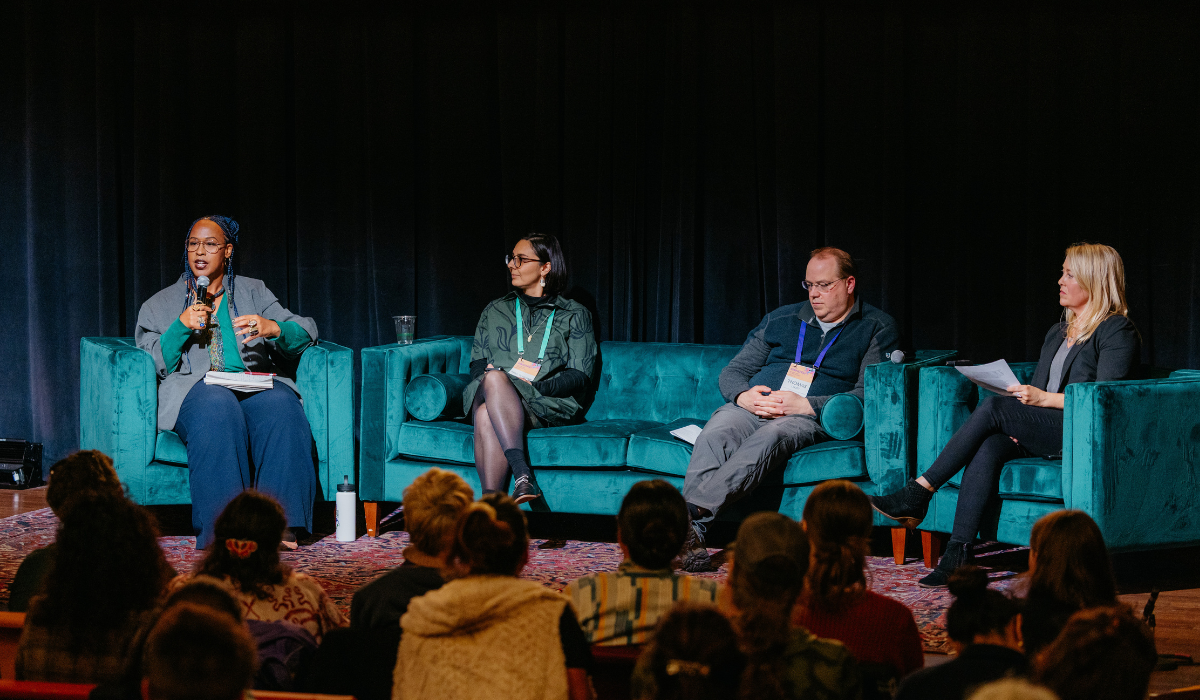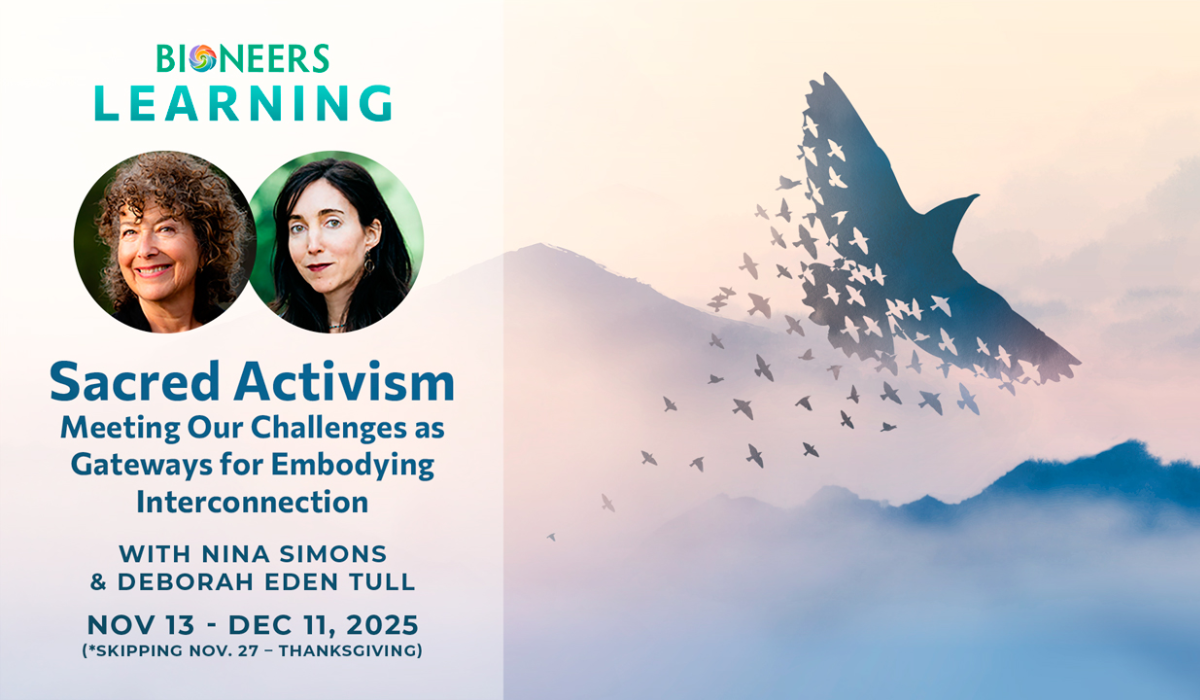Climate Action Strategies from the Grassroots Up
Bioneers | Published: July 2, 2025 Restoring Ecosystems Article
Our industrial, agricultural and land-use practices have set off a cascade of disruptions to the environment, increasing air and ocean temperatures faster than at any time in our human history. Rainfall patterns are shifting, glaciers and ice sheets are melting, permafrost is thawing, sea levels are rising, and severe weather is becoming more violent and frequent. All of these impacts cause specific harms, but they also have the potential to compound each other and lead to the collapse of ecosystems and the human systems that rely on them. To head off such devastating scenarios, there must not only be widespread global change but also targeted local action.
The biosphere is made up of hundreds of distinct ecosystems that support highly diverse societies, cultures and local communities, and each one faces its own specific series of threats, from deforestation to drought to flooding to dangerous pollution levels to plummeting biodiversity. To prevail in protecting our diverse planet, our greatest assets are often the local people who best know their ecosystems and communities. In this newsletter, we hear from several exemplary local leaders, including: Doria Robinson, among many other achievements, the longtime Director of Urban Tilth, a renowned urban food project building a more sustainable, healthy, and just food system; Abby Reyes, a lawyer, environmental organizer, and Director of Community Resilience Projects at the University of California, Irvine; and four other inspiring climate action leaders working on building bioregional alliances.
Want more news like this? Sign up for the Bioneers Pulse to receive the latest news from the Bioneers community straight to your inbox.

Doria Robinson – Empowering Community from the Grassroots: The Richmond, CA Model
The city of Richmond, California, has provided an impressive example of highly effective progressive grassroots organizing that has included the building of groundbreaking citizens’ organizations, local institutions and co-operatives, and successful electoral campaigns, as well as a major Environmental Justice victory in a decades-long struggle with Chevron, whose massive facilities have long polluted the region. One of the most important figures in this exemplary community is Doria Robinson, whose multi-faceted activism has been a key element in its successes. Since 2007, she’s been the Executive Director of Urban Tilth, a renowned urban food project building a more sustainable, healthy, and just food system, and has helped nurture the birth of many local initiatives, from bicycle co-ops to urban “greening” projects. Now serving on Richmond’s city council, Doria shares some of what she has learned in her decades of building people’s power from the ground up.

The Struggle for Justice in Colombia’s Oil Wars: Climate Organizer Abby Reyes on Love, Loss and Resilience
In 1999, three land rights defenders were kidnapped after they left Indigenous U’wa territory in Colombia. Multinational oil interests seeking the massive reserves beneath the region were attacking U’wa lifeways — and those who accompanied them in resistance. The bodies of Terence Freitas, Ingrid Washinawatok El-Issa (Menominee) and Lahe’ena’e Gay (Hawaiian) were eventually found bound and bullet-riddled in a cow pasture. The murders were part of a struggle that would continue for decades, bringing about both setbacks and victories for the U’wa.
Twenty years after the murders, Terence’s partner, Abby Reyes, found herself a party in Case 001 of Colombia’s truth and recognition process, set up to investigate the causes and consequences of that nation’s decades-long internal armed conflicts. In “Truth Demands: A Memoir of Murder, Oil Wars, and the Rise of Climate Justice,” Reyes navigates her own grief and the fight for accountability for the murders of Terence and his colleagues. In this conversation, Reyes, a lawyer, environmental organizer, and Director of Community Resilience Projects at the University of California, Irvine, discusses land rights advocacy, entrenched oil interests, resistance and resilience, and what she hopes her book can offer climate activists.
For a deeper look, read this moving excerpt from “Truth Demands.”

Going Globalocal: Bioregional Climate Action Strategies
As climate breakdown escalates, communities are increasingly realizing that climate action and resilience have as much to do with actual ecological boundaries as with political boundaries on a map. The fundamental principle of bioregionalism is that communities are to a large extent defined by their watersheds, foodsheds, and energy sheds and that basing their local organizing around these ecological realities can lead to meaningful strategic collective action. But how exactly can bioregional perspectives translate into effective political action? This visionary group of leading-edge climate action organizers illuminates multiple pathways for addressing both practical climate actions and emerging forms of eco-governance that center equity and justice.
In this presentation, we hear from global Indigenous climate leader Eriel Deranger; leading “Rights of Nature” attorney Thomas Linzey; climate justice organizer and attorney Colette Pichon Battle, whose Taproot Earth nonprofit works in the Gulf South and Appalachia; and OneEarth founder Justin Winters, whose science-based climate solutions framework focuses on Renewable Energy, Regenerative Agriculture, and Land and Biodiversity Conservation.

Bioneers Learning Course Spotlight — Sacred Activism: Meeting our Challenges as Gateways for Cultivating Relational Leadership
What if our greatest challenges are invitations to become more whole? In an era of accelerating change and deepening divides, we’re being called to meet the moment—not only with action but with presence, compassion, and a reimagined sense of leadership. This course is not about striving harder — it’s about showing up more fully, guided by love, connection, and a deepened sense of relational leadership. Led by Nina Simons and Deborah Eden Tull, this four-week online course runs from November 13 to December 11, 2025.
